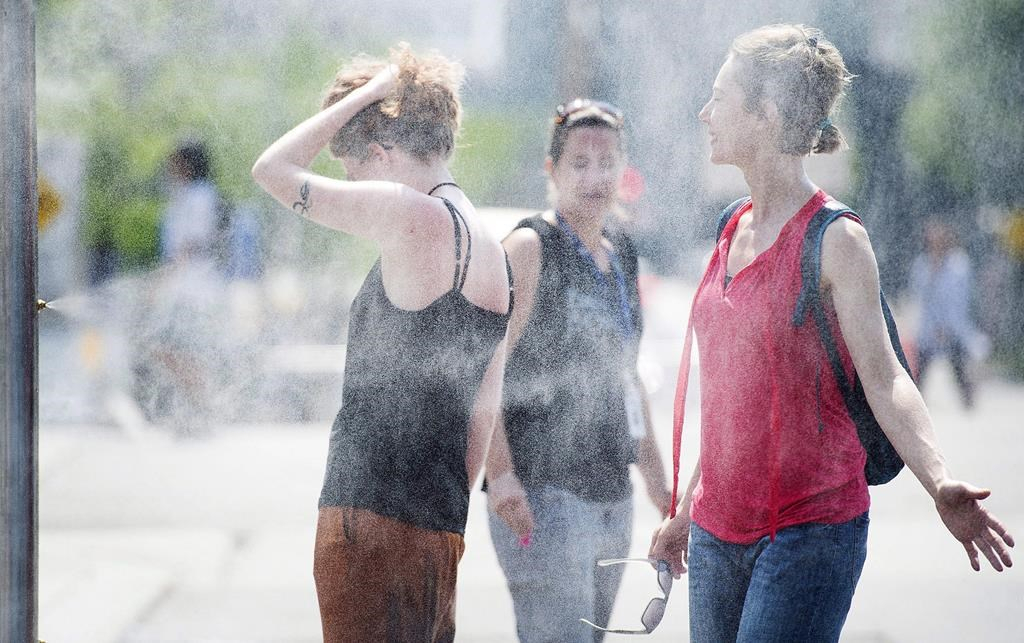Support strong Canadian climate journalism for 2025
A newly released climate change report commissioned by Ontario’s Ford government warns of a significant increase in extreme weather across the province in the coming decades. This comes after a summer marked by prolonged periods of extreme heat, rainstorms and unprecedented wildfire smoke in Ontario.
By the 2080s, southern, central and eastern Ontario are expected to witness an increase in the number of extreme heat days, with temperatures soaring over 30 C, the report states. The projection ranges from 55 to 60 such extreme heat days per year, which is nearly four times the current average of approximately 16 days. Even northern Ontario, which currently experiences around four extreme heat days annually, could see a significant rise to more than 35 such days each year.
The Provincial Climate Change Impact Assessment (PCCIA) report is dated Jan. 23 but was only publicly posted late this summer. It found climate risks are most pronounced among Ontario's most vulnerable populations, and as time passes and the climate grows more extreme, existing disparities and inequities will be exacerbated.
The report underscores that the increase in the number of extreme heat days will severely impact vulnerable groups, such as the elderly, children, those with pre-existing health conditions and Indigenous populations who are at higher risk during these events. Without adequate measures in place, these populations are likely to face serious health risks, according to the report.

"There is a very serious risk that the ongoing increase in the number of extreme heat days will result in rapid increases in heat-related deaths and illnesses," said Bryan Purcell, vice-president of policy and programs at The Atmospheric Fund, a regional climate change agency. "Ontario already experiences significant heat-related mortality in typical years — over a hundred per year on average in Toronto alone — and this could double or even triple by mid-century without intervention.”
Poverty is the biggest risk factor, as low-income Ontarians are more likely to have pre-existing medical conditions and less likely to have home air-conditioning, Purcell said. Seniors are also at elevated risk, he added.
The report also highlights the broader risks posed by climate change. Infrastructure, food and agriculture, people and communities, natural resources, ecosystems, the environment, business and the economy will all be adversely affected by extreme weather events. The report reads as a call to action for the government to address climate change's adverse effects, which are already impacting the province. It emphasizes the need for immediate action to mitigate the worst impacts of climate change and states rapid and substantial reductions in greenhouse gas emissions are needed alongside measures to adapt to a hotter planet. This includes enhancing climate resilience across social, economic and natural systems.
"Climate change is one of the greatest challenges of our time. Rising atmospheric concentrations of greenhouse gases are altering the Earth’s climate, driving increases in global average temperatures and variability and extremes of weather," the report says.
"Physical climate impacts and risks to human, natural and built systems in Ontario are driven by average annual warming temperature and extreme heat, drought, changes to intensity and frequency of precipitation and other climate variables."
As climate change continues at unprecedented rates, governments and regulatory agencies must develop policies and allocate resources to protect the environment, public health and safety, infrastructure, economies and communities, the report added.
Purcell said increases in heat-related deaths and illnesses are not inevitable. The vast majority of heat-related deaths occur indoors in residential homes or buildings without air conditioning, where temperatures are often several degrees warmer than outdoors, he added.
"These deaths are entirely preventable through building upgrades to ensure safe temperatures at home," said Purcell.
The installation of heat pumps, for example, can provide high-efficiency cooling while dramatically reducing carbon emissions from heating. Purcell told Canada's National Observer governments can address extreme heat by encouraging heat pump retrofits. Governments can also create regulations requiring building operators to maintain safe temperatures in multi-residential buildings and long-term care homes, he said.
Amid the rise in extreme heat temperatures and an increasing number of heat waves, many buildings lack air conditioning or cooling systems. It is not mandatory for landlords to install air conditioning or cooling systems. Last year, the Ontario Human Rights Commission (OHRC) urged the provincial government to recognize air conditioning as a vital service, similar to the provision of heat, under the Residential Tenancies Act regulations. The commission also called for the establishment of a provincial maximum temperature to ensure vulnerable tenants are safeguarded from eviction threats when using safely installed air-conditioning units.
“As temperatures rise due to climate change, extreme heat waves have and will continue to disproportionately impact groups protected under Ontario’s Human Rights Code,” reads a statement shared online by OHRC. “At highest risk are people with disabilities, older people, Indigenous, Black and other racialized communities, and people with low incomes who have little or no access to air conditioning and are more likely to live in areas with fewer parks and shaded outdoor areas.”
In response to these concerns, the Ford government in June amended the Residential Tenancies Act to permit tenants to install and use window or portable air conditioners in rental units where the landlord does not provide air conditioning.
Nazaneen Baqizada, spokesperson for the Ontario Ministry of Municipal Affairs and Housing, told Canada's National Observer that through the Helping Homebuyers, Protecting Tenants plan, the ministry has implemented new measures aimed at expanding and strengthening tenant rights, particularly in relation to air conditioning.
“The Residential Tenancies Act already allows a tenant to install an air conditioner, provided that the installation is done safely and in accordance with the terms of their lease,” said Baqizada. “Municipalities already have the authority to adopt and enforce bylaws concerning property standards for rental housing including air conditioning and regulating maximum temperatures.”
This story was produced in partnership with Journalists for Human Rights for the Afghan Journalists-in-Residence program funded by the Meta Journalism Project.






Comments
CBC reported yesterday that said report was delayed being released to the public for eight months by the Ontario Progressive Conservative government.
That delay is unconscionable.
I'm sure they are preparing...........gated sustainable communities for conservatives of means. I'm reminded of a quote in Jared Diamond's book Collapse. Speaking of the Norse of Greenland, determined to the end to maintain their 'European lifestyle": IN THE END, THE RICH STARVED LAST.
Having more than you need makes you just that Stupid.